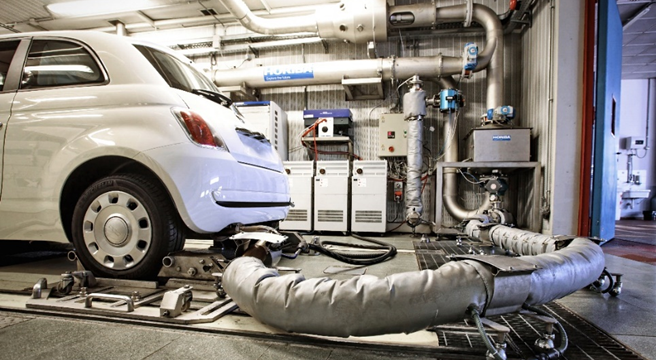
Today, the European Commission adopted a proposal for Euro 7. The Regulation will further support the EU’s endeavor to achieve climate neutrality, improve air quality, and make the fleet on European streets cleaner in the decades to come.
The FIA European Bureau (EB) shares the Commission’s intention to preserve technology neutrality as a guiding principle. ‘’Different propulsion technologies might require dedicated tests and performance criteria; however, they should push all propulsion technologies to become as clean and energy efficient as possible’’, explains Laurianne Krid, FIA EB Director-General.
The FIA EB welcomes the pragmatism of the Commission’s approach to introduce EURO 6-equivalent, yet technological-neutral emission exhaust limits for both petrol and diesel engines, as well as the new limit for ammonia (NH3) for passenger cars and vans. We deem both the fast application of Euro 7 limits, and lifetime compliance, of paramount importance: while the Commission proposes that the limits must be respected up to 200,000km and 10 years of use, it is our opinion that 240,000km and 16 years would better reflect the normal lifecycle of vehicles – including second-hand – on EU roads.
The FIA EB is glad that the affordability of the measures was considered as an important criterion in the Commission’s impact assessment, and that, at first glance, the measures proposed will only lead to a limited increase of costs for consumers.
The proposal recognizes the importance of vehicle connectivity for use-cases like on-board fuel consumption monitoring, on-board diagnostics, on-board monitoring, and geofencing; the FIA EB insists that all these legal use cases require direct-access to in-vehicle data and functions by authorised, independent service providers, while ensuring a state-of-the-art level of security.
In our view, this requires and should further pave the way for sector-specific legislation on access to vehicle date, functions, and resources, mandating a fully-fledged Secure On-board Telematics Platform (S-OTP), allowing authorised parties to get remote access to the environmental performance control systems, and helping consumers keep their cars on the roads, by avoiding breakdown. We are also pleased to see that the Commission proposes to tighten security requirements of the odometer system, thus reducing mileage fraud.
‘’We recommend implementing a harmonised security scheme across the EU and making it consistent across all regulatory use cases and urge the Commission to strike the right balance between access to in-vehicle data and functions, and vehicle security. Independent vehicle environmental performance testing programmes like Green NCAP, and independent service providers like our mobility clubs, must get direct and unrestricted access to in-vehicle data, although it is crucial that the consumer remains in control of the dataflows to and from the vehicle; both would be guaranteed by a Secure On-board Telematics Platform (S-OTP)’’, Laurianne Krid concluded.
To learn more about the FIA European Bureau’s position on Euro 7, read our position paper below.
Contacts
Diogo Pinto Guido Gielen
Policy Director Technical Director